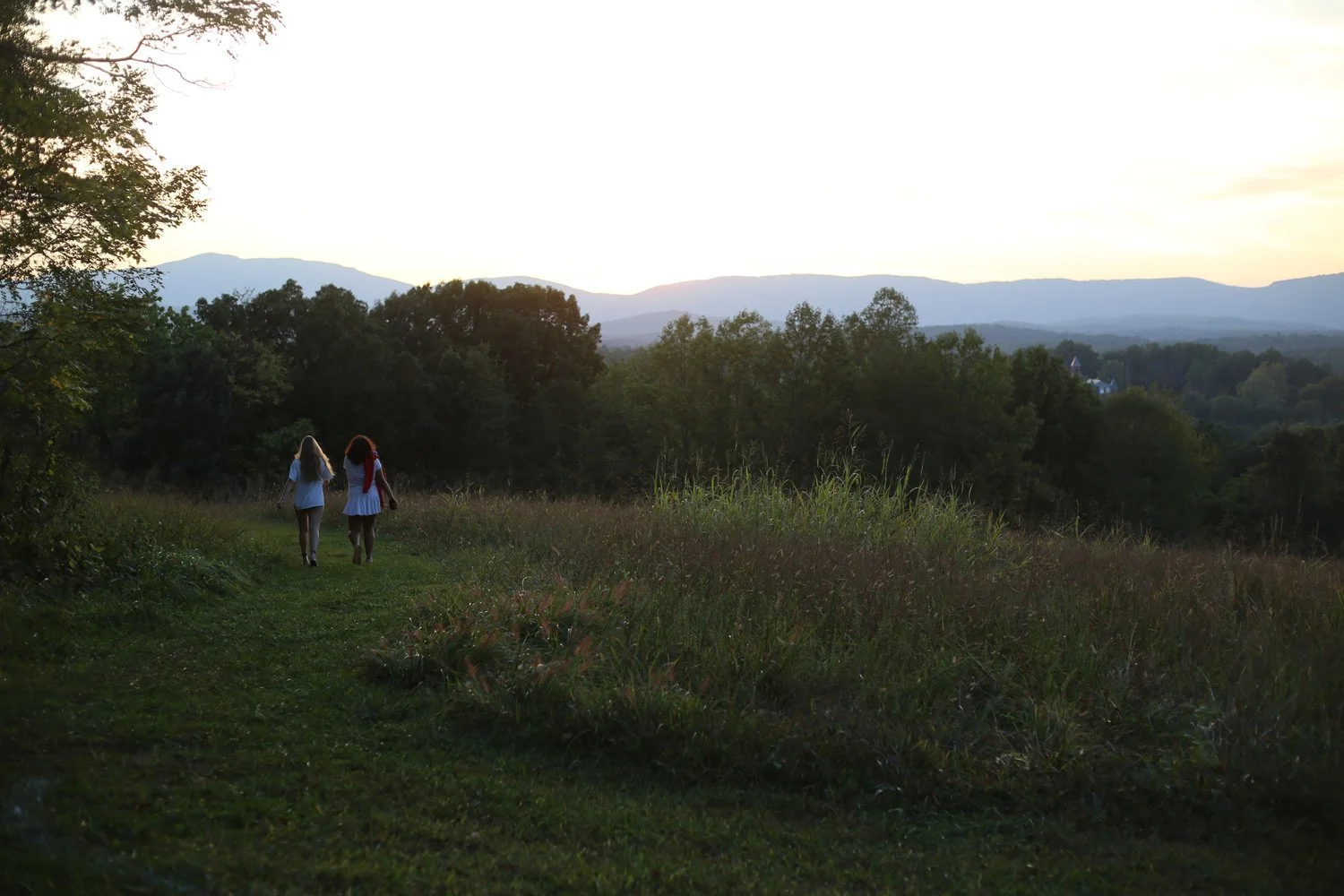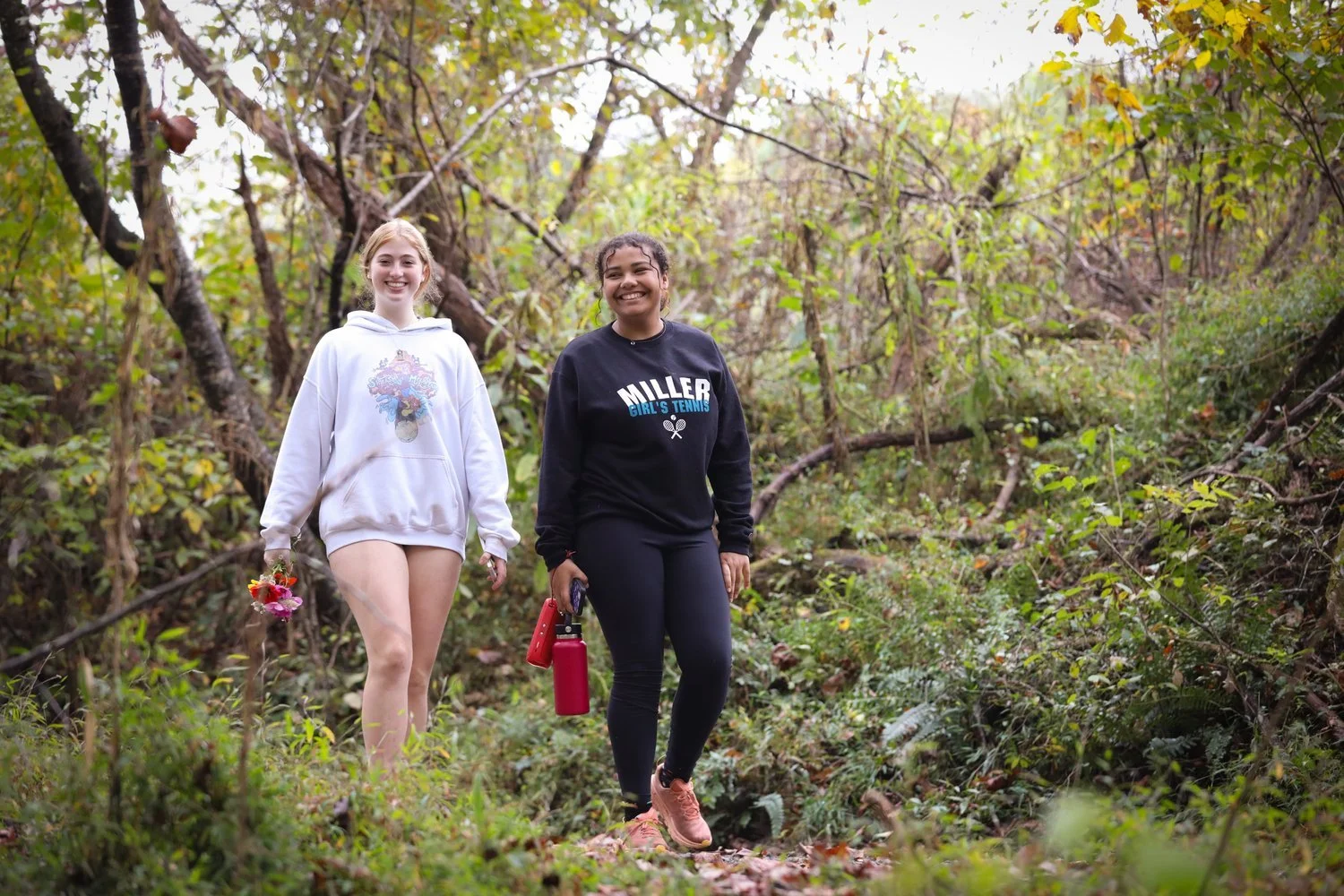A Purposeful Routine
Post dinner walk to take in the sunset in the Upper Meadow.
Aristotle held an affinity for structure and organization in one's life. He argued: “We are what we repeatedly do. Excellence, then, is not an act, but a habit.” He viewed routines as a means to declutter our lives, asserting that habits and routines liberate our minds from the burden of continual small decisions, allowing us to concentrate on purposeful actions.
Without routine, we run the risk of living lives where things happen to us instead of living lives where we make things happen. Many great thinkers, writers, and composers lived lives with routines and rituals. Beethoven took long walks after lunch with a pencil and paper in hand. Charles Dickens hiked three hours every day in the English countryside and dreamed up many of his novels in nature. Nikola Tesla compulsively walked ten miles a day and tinkered with ideas in his mind while exercising.
Here at Miller School, Erica Leia and Charlotte Whipkey have a nightly routine that would make Aristotle proud. After dinner, they go for a walk in the woods and meadows on MSA’s 1,600-acre campus. “Erica and I go on therapeutic walks around campus every night. Being in nature makes me realize what a special place Miller is,” Charlotte remarked.
Unplugged from technology and campus events, the duo commune with nature and get lost in conversations. Erica explains: “The daily walks Charlotte and I take are really therapeutic and a great use of all Miller has to offer.”
The stunning Blue Ridge Mountains provide a backdrop for contemplation and relaxation before nightly study hall in the dorm. Nature grounds them and recharges their minds and bodies. This routine helps them achieve their academic goals. It centers them. It helps them set their priorities. It is a time when their ideas take root. It is a time when they see the world more clearly.





